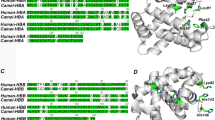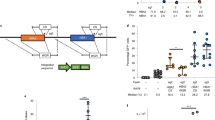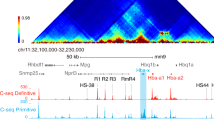Abstract
IT has been previously reported1,2 from this laboratory that in the blood of certain species of birds two electrophoretically distinct hæmoglobins can be detected, one of which has the same mobility as hæmoglobin E of the blood of thalassæmic patients with the genetic hæmoglobin E trait. This stimulated a systematic investigation of the blood of a larger number of bird species belonging to different natural orders, with regard to the electrophoretic behaviour of their hæmoglobin components.
This is a preview of subscription content, access via your institution
Access options
Subscribe to this journal
Receive 51 print issues and online access
$199.00 per year
only $3.90 per issue
Buy this article
- Purchase on SpringerLink
- Instant access to the full article PDF.
USD 39.95
Prices may be subject to local taxes which are calculated during checkout
Similar content being viewed by others
References
Saha, A. K., Science and Culture, 21, 756 (1956).
Saha, A. K., Dutta, R., and Ghosh, J., Science, 125, 447 (1957).
Stresemann, E., “Handbuch der Zoologie”, 7, Heft 2 (1934).
Biswas, B., “A Check-List of Genera of Indian Birds”, Pt. 1 (1952).
Saha, A. K., Datta, R., and Ghosh, J., Science and Culture, 23, 151 (1957).
Author information
Authors and Affiliations
Rights and permissions
About this article
Cite this article
DATTA, R., GHOSH, J. & GUHA, B. Electrophoretic Behaviour of Avian Hæmoglobins. Nature 181, 1204–1205 (1958). https://doi.org/10.1038/1811204a0
Issue date:
DOI: https://doi.org/10.1038/1811204a0



